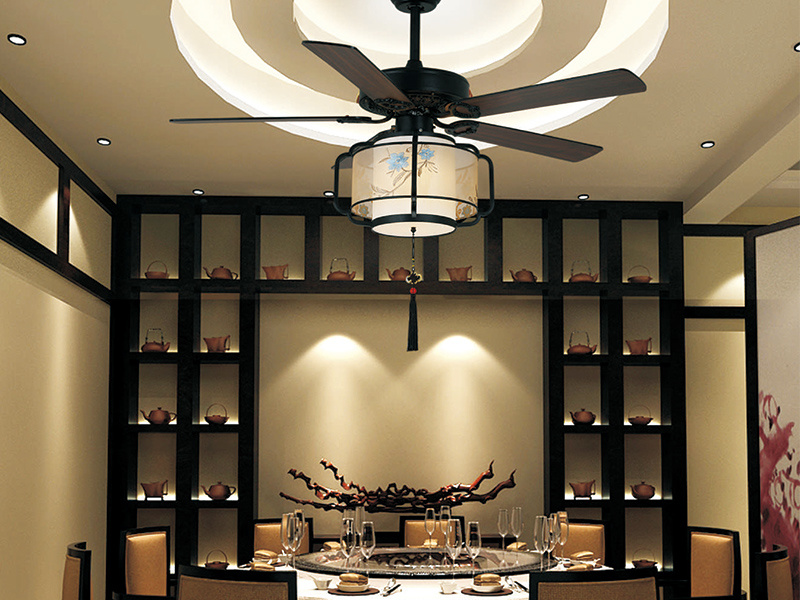
Household appliance industry: the scale is difficult to increase in the stock development period, but there is no scale competition
2022-08-26
Do household appliance enterprises still need large-scale production in the era of personalized demand? This is a question that many people in the industry are debating. Because, theoretically speaking, the personalized needs of users and modern mass production are paradoxes. But the reality is that without the continued expansion of the scale, the enterprise will lose its development momentum.
It is undeniable that today's society has entered the era of taking users as the core, leaving the era of taking products as the core. Taking users as the core is to meet the diversified and differentiated needs of users. The more detailed the user's needs are, the higher the degree of personalization, and the greater the difference of the products required.
Modern industrial production is characterized by intensification, intelligence, standardization and scale. Without intensive scale and standardization, it is difficult to achieve intelligent production on the automated production line. Therefore, it is difficult to realize intelligent production on automatic production lines for personalized products without scale.
This contradiction obviously exists at present and is extremely prominent. The soul of household appliances is confronted with such a phenomenon in a highly intelligent enterprise. The automatic production line in the factory is stopped, while the manual production line next to it is running. The soul of household appliances asked the person in charge of production why? He told that the automatic production line needs a certain amount once it is started. If it fails to reach this amount, the advantages of the automatic production line cannot be brought into play, and it is not as worthwhile as manual production. To know the intelligent production line, it will take a lot of effort to change the grinding tool and debug it. At this time, the manual production line has been completed. The person in charge also said that only large quantities of products can give full play to the advantages of intelligent automatic production lines.
It can be seen from this that scale is indispensable and necessary in the pursuit of digital and intelligent era in the industrial production field. Without a certain scale, Industry 4.0 cannot be implemented at all, and the advantages of intelligent automation production lines cannot be brought into play. Of course, the needs of users show a trend of diversification after their consumption capacity has been greatly improved. Users have indeed differentiated and their needs have become diverse. A single product can certainly not meet the needs of different levels.
What we need to do now is to centralize the personalization of many users to form a certain number, which will avoid the problem of insufficient number to meet the personalized needs? In addition, users are divided into different circles, and different circles will have great similarities in requirements. Grasping identity can solve the problem of personalized quantity.
In this sense, the connotation of scale in the digital era is different from that in the traditional era, and its connotation is essentially different. The scale of the traditional era is the most basic is that the enterprise has a large number of employees, relying on crowd tactics to expand its market and competitive advantage; The difference is that in the digital era, scale personnel are replaced by robots, and the scale is reflected in the size of the business volume of enterprises.
In fact, in the digital era, scale has a broad and narrow sense. Broadly speaking, scale refers to the overall scale formed by the diversification of enterprise management. Now the market value on the capital market is a manifestation of scale; In a narrow sense, scale refers to the quantity and scale of a product or a subdivided category.
Although we do not need large-scale competition on a certain product, it does not mean that industrial production, especially intelligent and automated production, does not need scale. Therefore, we see that the development of household appliance enterprises is a process from specialization to diversification. At the initial stage of the development of the household appliance industry, most of the winners were professional and dedicated enterprises. In the mature development stage, professional focus is obviously restrained in scale, and diversification has become the main theme of development.
For example, from the perspective of the development history of the air conditioning industry, Gree has always been the leader of the industry by virtue of its professional focus in the incremental period of the industry. However, when the industry enters the stock development period, the scale is moving forward against the ceiling and is surpassed by Midea in terms of overall scale. As a last resort, Gree also has to choose diversification, with the purpose of continuing the growth of the enterprise scale.
What is worth rethinking in the industry is that Japanese household appliance brands used to be pioneers and seeders in the Chinese market, with industrial and technological opportunities. However, Japanese funded enterprises generally focus on making money at the high-end, ignoring the vast majority of users in the industry. Therefore, despite the advantages of first entry, they are still unable to scale up. Without scale, there is no right to speak in the industry? As a result, they were defeated by Chinese enterprises by scale, and finally had to withdraw from the Chinese market.
Let's take a look at the market: there are many categories in the market, including first-line brand showrooms, but there are only a few that are really recommended in the market. Why? It is to concentrate the products on several models, so as to concentrate the quantity of the same product at a time and form a certain scale of production, which can greatly reduce costs and increase market competitiveness.
In the final analysis, the most basic feature of industrialization is scale, leaving scale is like returning to the era of handicrafts. Handwork can produce craftsmen and highlight personality, but it does not represent modern industry. It is undeniable that the digital era is a pluralistic era, and users are also divided into multiple levels, so household appliances should also meet different levels. But don't forget that the pursuit of scale is still one of the driving forces for the development of household appliance enterprises.
It is worth mentioning that under the market economy, scale is not only the competitiveness of enterprises, but also the moat of enterprises. Otherwise, there will not be so many enterprises actively pursuing scale expansion. However, a certain scale can greatly reduce the production and operation costs, endow brands and products with strong competitiveness, so as to win in the market competition.
Of course, the larger the enterprise, the better. On the one hand, it is a problem to form a monopoly. Antitrust has always been the top priority of the management, and it is inevitable to be limited after a certain scale; On the other hand, when the scale reaches a certain size, marginal effects will easily appear in management, thus weakening the competitiveness of enterprises. It can be seen that the larger the enterprise, the better.
Therefore, the soul of home appliances believes that everything should be done in a proper way, and the scale of enterprises should also be restrained, rather than expanding the scale without restraint. In other words, it is necessary to find the balance between scale and personality. Otherwise, scale will become both an advantage and a hidden danger!









